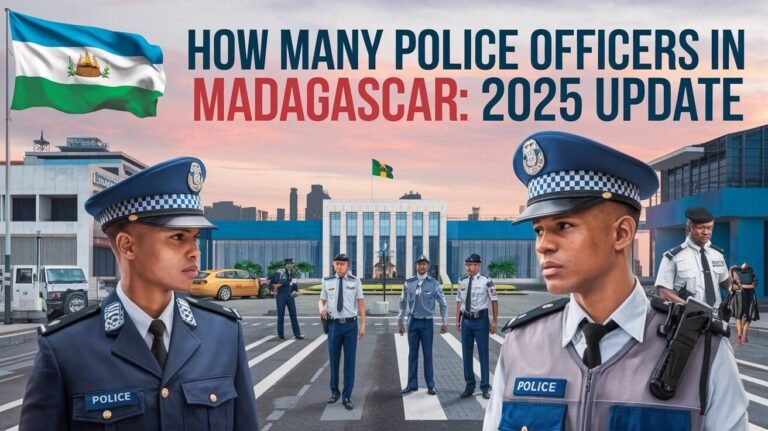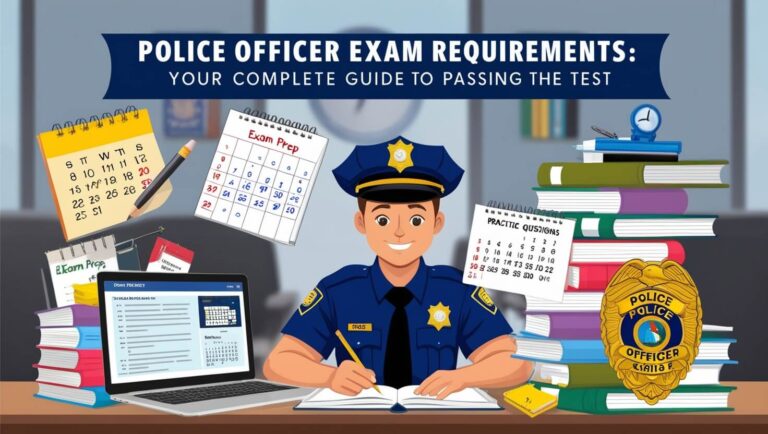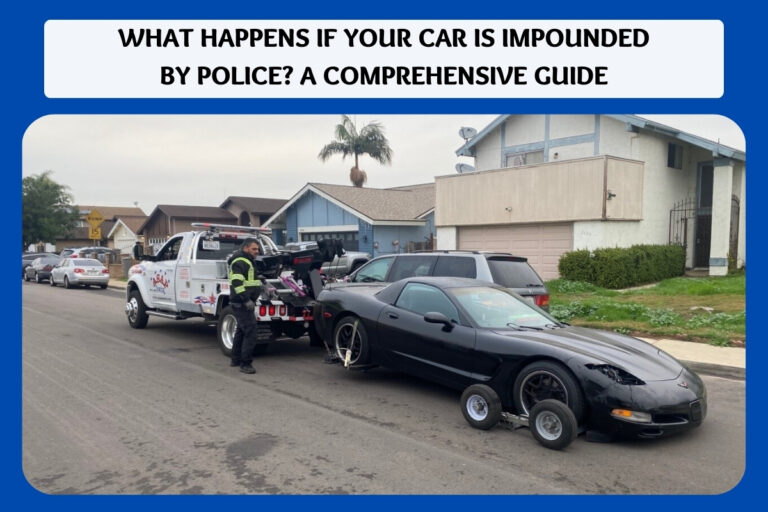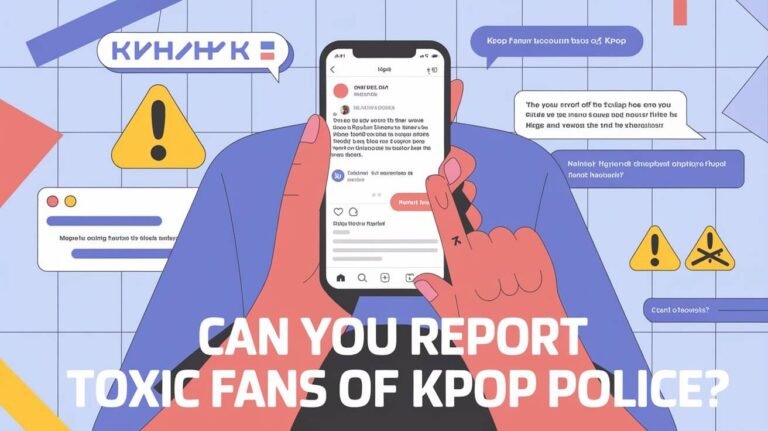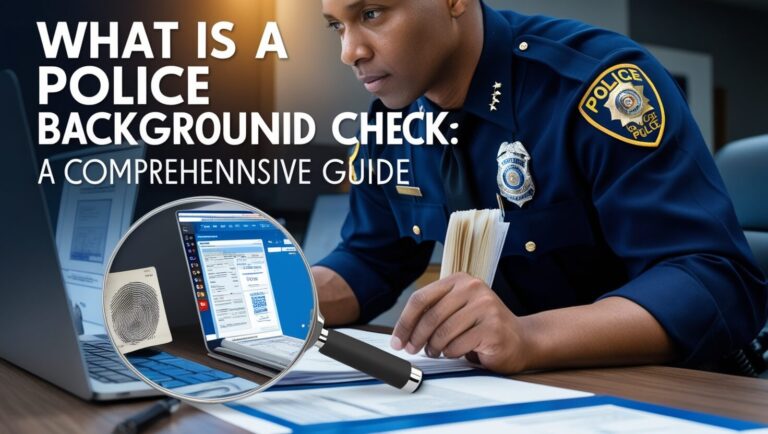What’s Required to Become a Police Officer: Full Guide 2024
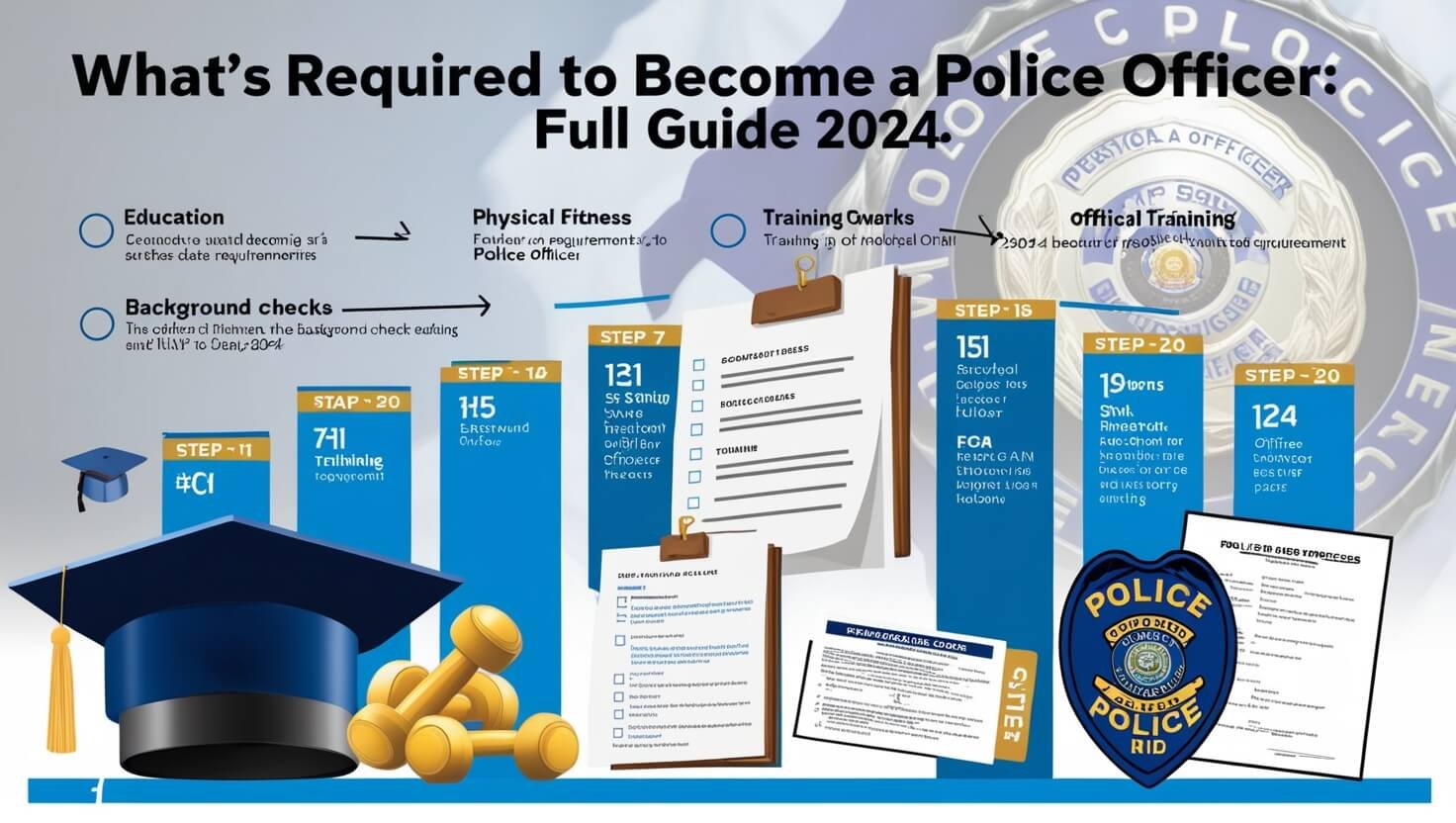
Are you considering a career in law enforcement? Becoming a police officer requires meeting specific age, education, and physical fitness standards, passing background checks, and completing rigorous training at a police academy. This guide breaks down everything you need to know about the journey to wearing the badge.
Law enforcement plays a crucial role in maintaining public safety and upholding justice. Police officers stand on the front lines, protecting communities and serving as the first point of contact for many in times of need. It’s a challenging yet rewarding career that attracts individuals with a strong sense of duty and a desire to make a difference.
But what does it really take to join the ranks of law enforcement? Let’s dive into the requirements and steps you’ll need to follow to turn your aspirations of becoming a police officer into reality.
Age and Citizenship Requirements for Police Officers
One of the first hurdles you’ll face in your journey to becoming a police officer is meeting the basic eligibility criteria. These requirements ensure that candidates are mature enough to handle the responsibilities of the job and have the necessary ties to the community they’ll serve.
Minimum Age Limits Across Different Jurisdictions
Most police departments set their minimum age requirement at 21 years old. This age limit allows candidates to gain some life experience and maturity before taking on the weighty responsibilities of law enforcement. However, some agencies may accept applicants as young as 18, especially for cadet programs or certain support roles.
It’s worth noting that while there’s often a minimum age, many departments don’t have a maximum age limit. This opens the door for career changers who feel called to serve later in life.
Citizenship and Residency Requirements
To become a police officer in the United States, you typically need to be a U.S. citizen. This requirement stems from the sensitive nature of police work and the need for officers to have a deep understanding of the communities they serve.
Some departments also have residency requirements. They may ask that officers live within city limits or a certain distance from their assigned precinct. These rules aim to ensure officers are invested in the communities they protect.
Education Requirements for Aspiring Police Officers
Gone are the days when a high school diploma was enough to land you a spot on the police force. Today’s law enforcement agencies are looking for well-rounded individuals with a solid educational background.
High School Diploma or GED
At the very minimum, you’ll need a high school diploma or its equivalent (GED) to become a police officer. This basic educational requirement ensures that candidates have a foundational level of knowledge and the ability to learn and apply new information.
College Education: Benefits and Requirements
While not always mandatory, having a college degree can significantly boost your chances of becoming a police officer. Many departments now prefer or require candidates to have at least some college education. Here’s why:
- Enhanced critical thinking skills: College courses help develop analytical abilities crucial for investigative work.
- Better communication: Writing reports and interacting with the public are key parts of police work. College helps refine these skills.
- Specialized knowledge: Degrees in criminal justice, psychology, or sociology can provide valuable insights into human behavior and the legal system.
- Advancement opportunities: A degree can fast-track your career progression within the department.
Some departments offer higher starting salaries for officers with degrees or may require a degree for certain specialized units or leadership positions.
Physical Fitness Standards for Police Officer Candidates
Being a police officer isn’t just mentally demanding – it’s physically challenging too. That’s why departments have strict fitness requirements for their recruits.
Common Physical Tests and Benchmarks
Most police academies and departments use a combination of tests to assess a candidate’s physical readiness. These often include:
- 1.5-mile run: Tests cardiovascular endurance.
- Push-ups: Measures upper body strength.
- Sit-ups: Evaluates core strength.
- Vertical jump: Assesses leg power.
- Obstacle course: Tests overall agility and stamina.
The exact standards vary by department, but they’re designed to ensure officers can handle the physical demands of the job, from chasing suspects to controlling resistive individuals.
Maintaining Fitness Throughout Your Career
Passing the initial fitness test is just the beginning. Many departments require officers to maintain their physical fitness throughout their careers. Regular fitness assessments help ensure that officers remain capable of performing their duties effectively and safely.
Steps to Apply for a Police Officer Position
Ready to take the plunge? Here’s a step-by-step guide to navigating the application process for becoming a police officer.
Finding Job Openings and Submitting Applications
- Research departments: Look into different agencies in your area or where you’d like to work.
- Check eligibility: Make sure you meet the basic requirements before applying.
- Prepare documents: Gather necessary paperwork like your driver’s license, birth certificate, and education records.
- Submit application: Fill out the application thoroughly and accurately. Any discrepancies could disqualify you.
Initial Screening and Written Exams
Once your application is in, you’ll likely face a series of tests:
- Written exam: Tests your knowledge of basic laws, reading comprehension, and problem-solving skills.
- Physical agility test: Assesses your fitness level as discussed earlier.
- Oral interview: Allows the department to evaluate your communication skills and motivations.
Passing these initial screenings moves you to the next, more intensive phase of the process.
Background Checks for Police Officer Applicants
Given the authority and responsibility that comes with being a police officer, departments conduct thorough background checks on all applicants.
Criminal History and Disqualifying Offenses
A clean criminal record is crucial for aspiring police officers. While minor infractions might not automatically disqualify you, certain offenses will:
- Felony convictions
- Domestic violence charges
- Drug-related offenses
- Multiple DUIs
Be honest about your history. Lying on your application is a sure way to get disqualified.
Financial Background and Credit Checks
Departments also look into your financial history. They’re checking for:
- Responsible financial management
- No excessive debt
- No patterns of living beyond your means
The reasoning? Financial struggles could make an officer more susceptible to corruption or bribery.
Medical and Psychological Evaluations for Police Officers
Being a police officer is both physically and mentally demanding. That’s why departments conduct thorough health screenings before hiring.
Physical Health Requirements and Examinations
You’ll undergo a comprehensive medical exam to ensure you’re fit for duty. This typically includes:
- Vision and hearing tests
- Drug screening
- Assessment of overall health and any pre-existing conditions
The goal is to make sure you can handle the physical demands of the job without putting yourself or others at risk.
Mental Health Screening and Psychological Assessments
Equally important is your mental and emotional fitness. Police work can be stressful and traumatic. Psychological evaluations help determine if you’re equipped to handle these challenges. These assessments typically involve:
- Personality tests
- Stress tolerance evaluations
- Interviews with a psychologist
Remember, these tests aren’t about finding “perfect” individuals, but rather identifying those who can cope with the unique stresses of police work.
What to Expect in Police Academy Training
Congratulations! You’ve made it through the application process and been accepted to the police academy. But your journey is just beginning. Police academy training is intense and comprehensive, designed to prepare you for the challenges of law enforcement.
Duration and Intensity of Training Programs
Police academy programs typically last between 13 to 19 weeks, though some may be longer. During this time, you’ll be immersed in a rigorous, full-time training environment. Be prepared for long days filled with physical training, classroom instruction, and practical exercises.
Core Subjects and Skills Covered
Academy training covers a wide range of topics essential for police work:
- Criminal law and procedures: Understanding the legal framework you’ll be enforcing.
- Constitutional law: Knowing the rights of citizens and the limits of police power.
- Traffic laws: Learning how to enforce traffic regulations and handle accidents.
- Emergency response: Preparing for crisis situations and disaster management.
- Community relations: Developing skills for positive interactions with the public.
- Report writing: Mastering the art of clear, accurate documentation.
- First aid and CPR: Learning life-saving techniques.
Physical Training in Police Academies
Physical fitness is a crucial component of police academy training. You’ll be pushed to your limits to ensure you’re ready for the demands of the job.
Fitness Routines and Self-Defense Techniques
Daily physical training is the norm at police academies. This includes:
- Strength training exercises
- Cardiovascular workouts
- Flexibility and agility drills
You’ll also learn various self-defense techniques and how to safely restrain individuals. These skills are crucial for your safety and the safety of those you’ll interact with on the job.
Firearms Training and Qualifications
Proper use of firearms is a critical skill for police officers. At the academy, you’ll receive extensive training in:
- Firearm safety and handling
- Marksmanship
- Decision-making scenarios for when to use force
You’ll need to qualify with your service weapon, demonstrating both accuracy and good judgment in simulated situations.
Classroom Instruction for Future Police Officers
While physical training is important, a significant portion of your time at the academy will be spent in the classroom.
Legal Studies and Criminal Justice Fundamentals
You’ll dive deep into the legal aspects of police work, including:
- Constitutional law
- Criminal law and procedure
- Evidence handling and chain of custody
- Court testimony
Understanding these topics is crucial for effective and lawful policing.
Communication Skills and Community Policing
Modern policing emphasizes community relations and de-escalation techniques. You’ll learn:
- Effective communication strategies
- Conflict resolution skills
- Cultural sensitivity and diversity awareness
- Mental health crisis intervention
These skills are essential for building trust with the communities you’ll serve.
Field Training for New Police Officers
Graduating from the academy is a major milestone, but your training isn’t over yet. The next phase is field training, where you’ll put your academy knowledge into practice.
Partnering with Experienced Officers
As a new officer, you’ll be paired with a Field Training Officer (FTO). This experienced officer will:
- Guide you through real-world policing scenarios
- Evaluate your performance
- Provide feedback and additional training as needed
This mentorship is crucial for developing your skills and confidence as a new officer.
Practical Application of Academy Knowledge
During field training, you’ll handle a variety of calls and situations under supervision. This might include:
- Traffic stops
- Domestic disturbances
- Theft reports
- Community engagement activities
Each day brings new challenges and opportunities to apply what you’ve learned.
Probationary Period for Rookie Police Officers
After field training, you’ll enter a probationary period as a full-fledged officer. This is your chance to prove yourself on the job.
Length and Purpose of Probation
The probationary period typically lasts 12 to 18 months. During this time, you’ll be:
- Working independently but under close supervision
- Evaluated regularly on your performance
- Expected to demonstrate proficiency in all aspects of the job
This period allows the department to ensure you’re cut out for the demands of police work.
Performance Evaluations and Feedback
Throughout your probation, you’ll receive regular feedback on your performance. This includes:
- Formal evaluations from supervisors
- Reviews of your incident reports and arrests
- Feedback on your interactions with the public and fellow officers
Use this feedback to continually improve your skills and address any areas of concern.
Continuing Education for Police Officers
Becoming a police officer is just the beginning of your law enforcement journey. The field is constantly evolving, and ongoing education is crucial for staying effective and advancing your career.
Mandatory Training and Certifications
Most departments require officers to complete a certain number of training hours each year. This might include:
- Updates on new laws and procedures
- Refresher courses on use of force and de-escalation
- Specialized training for new equipment or techniques
Staying current with these requirements is essential for maintaining your certification as a police officer.
Advanced Degrees and Specializations
Many officers choose to pursue further education to advance their careers. Options include:
- Bachelor’s or Master’s degrees in Criminal Justice
- Specialized certifications in areas like cybercrime or forensics
- Leadership and management courses for those aiming for supervisory roles
Continued education can open doors to promotions and specialized units within your department.
Physical Fitness Maintenance for Police Officers
Staying in shape isn’t just about passing your initial fitness test – it’s a career-long commitment for police officers.
Regular Fitness Assessments
Many departments conduct annual or bi-annual fitness tests to ensure officers maintain their physical capabilities. These tests often mirror the initial fitness requirements and may include:
- Timed runs
- Strength exercises
- Obstacle courses
Failing to meet these standards could affect your job status or eligibility for certain assignments.
Department Wellness Programs
Recognizing the importance of officer health, many departments offer wellness programs. These might include:
- Access to gym facilities
- Nutritional counseling
- Stress management workshops
Taking advantage of these resources can help you stay fit for duty and manage the physical and mental stresses of the job.
Requirements for State and Federal Law Enforcement Positions
While we’ve focused mainly on local police departments, there are many other law enforcement career paths, each with its own set of requirements.
State Trooper and Highway Patrol Requirements
State-level law enforcement agencies often have similar requirements to local departments, but may emphasize:
- Higher education requirements (often a bachelor’s degree)
- More extensive driving skills and vehicle operation training
- Willingness to work in various locations throughout the state
FBI, DEA, and Other Federal Agency Requirements
Federal law enforcement agencies typically have more stringent requirements:
- Bachelor’s degree (minimum)
- Several years of professional experience
- Specialized skills (like language proficiency or computer expertise)
- Willingness to relocate anywhere in the country
These positions often involve more specialized work and can offer opportunities for national and international assignments.
Specialized Police Units and Their Additional Requirements
Within police departments, there are often specialized units that require additional qualifications and training.
SWAT Team Qualifications
Special Weapons and Tactics (SWAT) teams handle high-risk situations. To qualify, you typically need:
- Several years of exemplary service as a patrol officer
- Superior physical fitness
- Advanced weapons training
- Tactical and strategic thinking skills
SWAT selection processes are highly competitive and involve rigorous physical and mental assessments.
K-9 Unit and Detective Requirements
Other specialized roles have their own unique requirements:
- K-9 officers need a strong affinity for working with dogs and often undergo months of additional training with their canine partners.
- Detectives usually need several years of patrol experience, strong investigative skills, and often additional education or training in areas like forensics or cybercrime.
These specialized roles offer opportunities to focus on specific aspects of law enforcement that align with your interests and skills.
Common Obstacles in the Police Officer Application Process
Becoming a police officer is a competitive process, and there are several common challenges applicants face.
Competitive Nature of the Field
Law enforcement is an attractive career for many, which means you’ll be competing against numerous other qualified candidates. To stand out:
- Exceed the minimum requirements whenever possible
- Gain relevant experience through volunteer work or internships
- Prepare thoroughly for each stage of the application process
Overcoming Personal History Issues
Minor issues in your past don’t necessarily disqualify you, but they need to be addressed honestly:
- Be upfront about any past indiscretions
- Demonstrate how you’ve grown and learned from past mistakes
- Provide character references who can vouch for your integrity
Remember, departments are looking for candidates who show honesty and personal growth.
Ethical Considerations for Aspiring Police Officers
Ethics play a crucial role in law enforcement. As a police officer, you’ll be held to high moral standards both on and off duty.
Understanding the Importance of Integrity
Integrity is the cornerstone of effective policing. This means:
- Always being truthful, even when it’s difficult
- Resisting any temptation to abuse your authority
- Treating all members of the community with respect and fairness
Your integrity as an officer directly impacts public trust in law enforcement.
Dealing with Ethical Dilemmas on the Job
Police work often presents complex ethical challenges. You might face situations where:
- You need to report misconduct by fellow officers
- You’re offered bribes or special treatment
- You must balance compassion with law enforcement
Developing strong ethical decision-making skills is crucial for navigating these challenges successfully.
The Future of Policing and Evolving Requirements
The field of law enforcement is constantly evolving, and future police officers will need to adapt to new challenges and technologies.
Technological Advancements in Law Enforcement
Technology is reshaping police work in many ways:
- Body cameras are becoming standard equipment
- Data analytics are being used to predict and prevent crime
- Social media is playing a larger role in investigations and community engagement
Future officers will need to be comfortable with these technologies and able to adapt to new tools as they emerge.
Community Policing and Cultural Competency Requirements
There’s an increasing emphasis on community-oriented policing, which requires:
- Strong interpersonal and communication skills
- Cultural awareness and sensitivity
- Ability to build positive relationships with diverse communities
Future officers will need to be adept at balancing traditional law enforcement with community engagement and problem-solving approaches.
Conclusion
Becoming a police officer is a challenging but rewarding journey. It requires meeting rigorous physical, educational, and ethical standards, as well as a commitment to ongoing learning and community service. The path to wearing the badge demands dedication, integrity, and a genuine desire to serve and protect your community.
As we’ve explored, the requirements to become a police officer are multifaceted. From meeting basic eligibility criteria like age and citizenship, to passing stringent background checks and physical fitness tests, the process ensures that only qualified individuals join the ranks of law enforcement. The intensive training at police academies and the ongoing education throughout an officer’s career reflect the complex and ever-evolving nature of police work.
The job of a police officer extends far beyond enforcing laws. Today’s officers are expected to be problem-solvers, community liaisons, and guardians of public safety. They must navigate complex social issues, embrace new technologies, and adapt to changing societal expectations.
For those considering this career path, it’s crucial to understand that becoming a police officer is more than just a job – it’s a calling. It requires a strong moral compass, physical and mental resilience, and a commitment to lifelong learning and personal growth.
As the field of law enforcement continues to evolve, so too will the requirements for becoming a police officer. Future officers will need to be adaptable, tech-savvy, and culturally competent. They’ll need to balance traditional policing methods with new approaches that emphasize community engagement and problem-solving.
If you’re drawn to a career that offers daily challenges, the opportunity to make a real difference in people’s lives, and the chance to be part of something bigger than yourself, then becoming a police officer might be the right path for you. The journey isn’t easy, but for those who are truly committed, it can lead to a fulfilling and impactful career in public service.
Remember, the specific requirements to become a police officer can vary by department and jurisdiction. If you’re serious about pursuing this career, reach out to local law enforcement agencies or police academies for the most up-to-date information on their hiring processes and requirements.
Ultimately, what’s required to become a police officer goes beyond meeting a checklist of qualifications. It requires a deep commitment to public service, a strong sense of ethics, and the resilience to face the challenges that come with protecting and serving your community. If you possess these qualities and are willing to put in the hard work, a rewarding career in law enforcement could be waiting for you.

